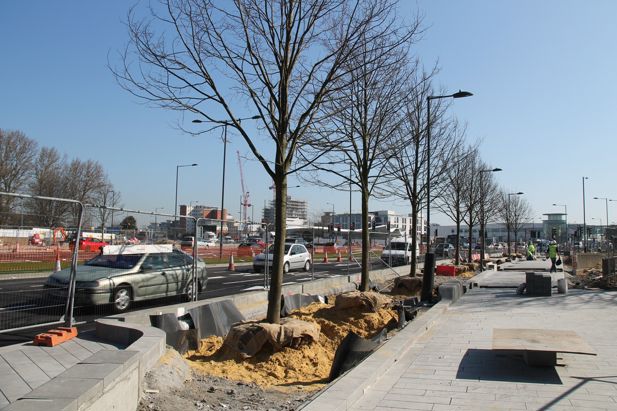The Biophilic City: Building research capacity in urban change
- Location
- Lucas House Conference Park
- Dates
- Wednesday 6 March 2013 (09:30-16:30)

For the first time, the majority of the world’s population now lives in cities. The pressure we are putting on the planet’s carrying capacity is therefore focused on the highly-coupled flows of people, mass, energy, and capital in and around cities. Capturing the multi-dimensional cultural and material dynamics of cities is an enormous undertaking, one of the grandest challenges facing us. Nevertheless, useful progress has been made, not least with the development of the interdisciplinary Designing Resilient Cities[1] and with concepts such as the biophilic city[2]. The Designing Resilient Cities method provides a practical way to build-in resilience whilst reducing the chances of perverse outcomes. The biophilic city seeks to reconstitute our approach to cities such that the dynamics of urban living comes into balance with the dynamics of the ecosystems sharing our space. These examples show that there are new practical and conceptual tools to-hand that can help us understand cities as systems.
The UK has a strong, if not entirely coherent, community of urbanists, but not a national capability for multi-dimensional research into urban change[3]. The University of Birmingham (UoB) has significant research power in urbanism that is better integrated than in most UK HEIs.
The primary aim of the IAS workshop is to further integrate UoB’s urban research power in urban change in order to attack grand challenges. The workshop will identify ambitious research proposals and start the process of writing them. Funding streams relevant to this area exist within all elements of RCUK; as well as focused proposals to the relevant research council, the IAS programme would position the university and its key partners to influence high-level integrative programmes such as LWEC, and target funding streams for integrative work, such as those from the James S. MacDonnell Foundation and the EU Horizon 2020 programme[4]. Other IAS workshops will look at other emerging issues relevant to cities — using the concept of human vulnerability to critique socio-political governance, examining hydrohazards, and developing techniques to investigate the impacts of multiple environmental stressors and our intention is to find as much common ground as possible across the workshops, allowing ideas to germinate wherever they find conducive intellectual conditions and a route to funding. On-going networking will be provided through the university’s existing Centre for Urban and Regional Studies.
Agenda
09:30 Arrival, refreshments, registration
10:00 Opening remarks and roundtable mapping of expertise
11:15 Coffee
11:45 Biophilic cities, an introduction and open discussion – Tim Beatley
13:00 Lunch
14:00 Disruptive technologies / disruptive ideas - plenary discussion about what UoB can offer
14:45 Small-group discussions to develop ideas emerging from plenary
15:45 Next steps
16:30 Close
[1]Developed through an EPSRC project at at the Universities of Birmingham, Lancaster, Exeter, and Birmingham City. (BRE Press, 2012): http://www.brebookshop.com/details.jsp?id=326921
[2] The concept of the biophilic city is due to: Kellert, SR, JH Heerwagen, ML Mador, Biophilic Design, John Wiley & Sons, Chichester, 2008; and Beatley, T., Biophilic Cities, Island Press, Washington DC, 2010
[3] See, e.g., the final report of the EPSRC-funded SUE Research Dialogues at http://suedialogues.wordpress.com/2011/05/27/sue-research-dialogues-report-download/
[4] Particularly key proposals within “resource-efficient Europe”, a Flagship initiative of the Europe 2020 Strategy: see http://ec.europa.eu/resource-efficient-europe/index_en.htm